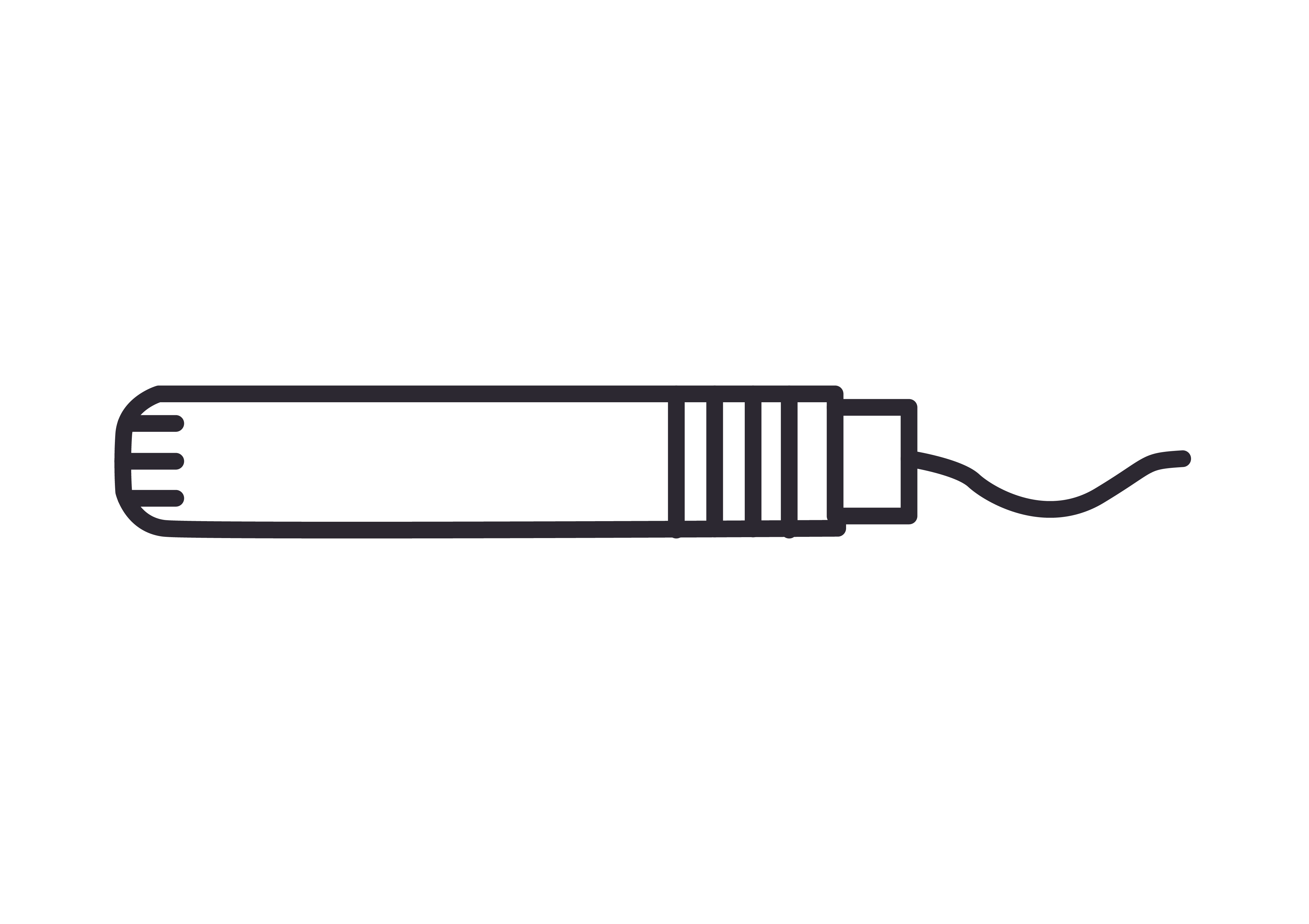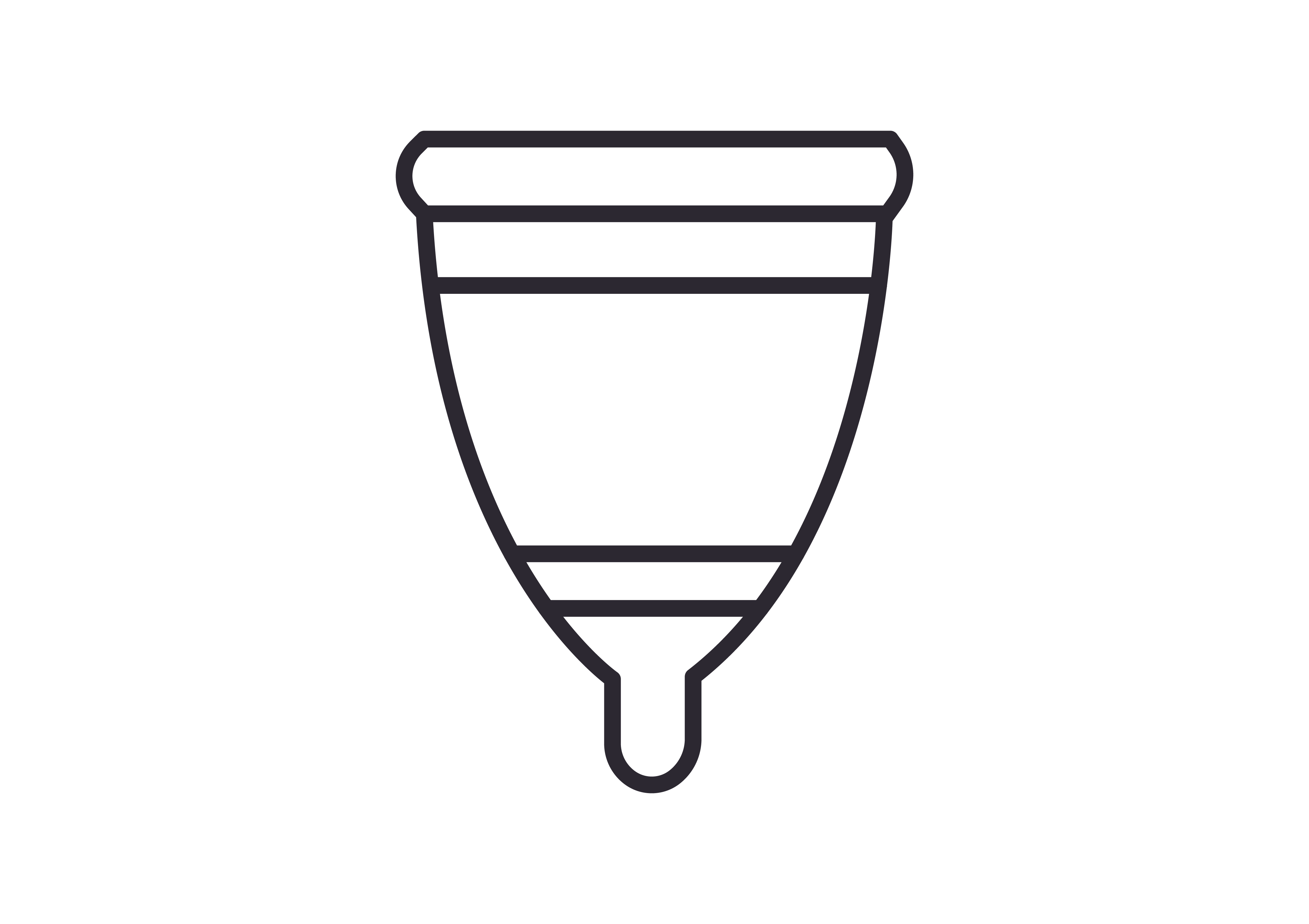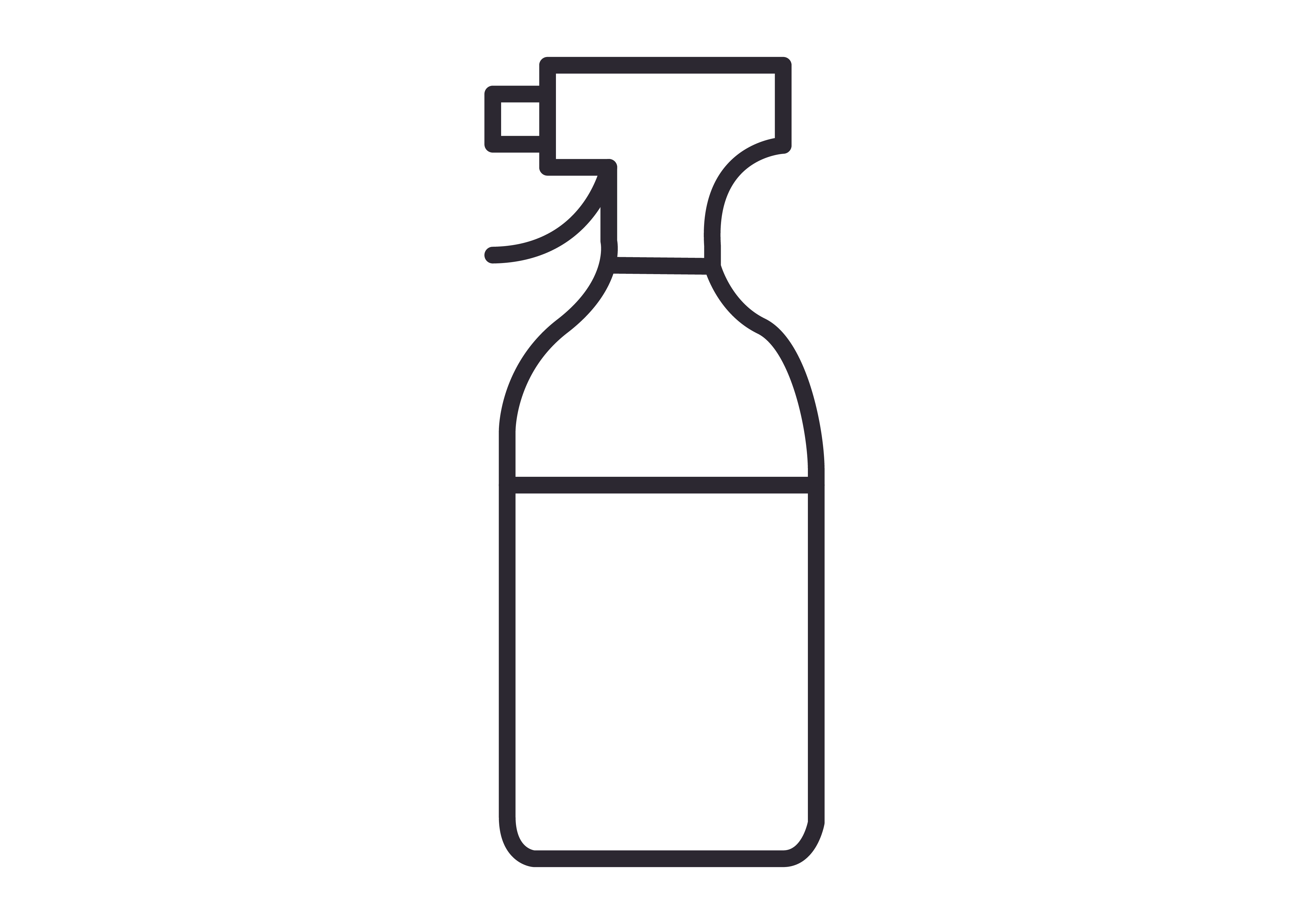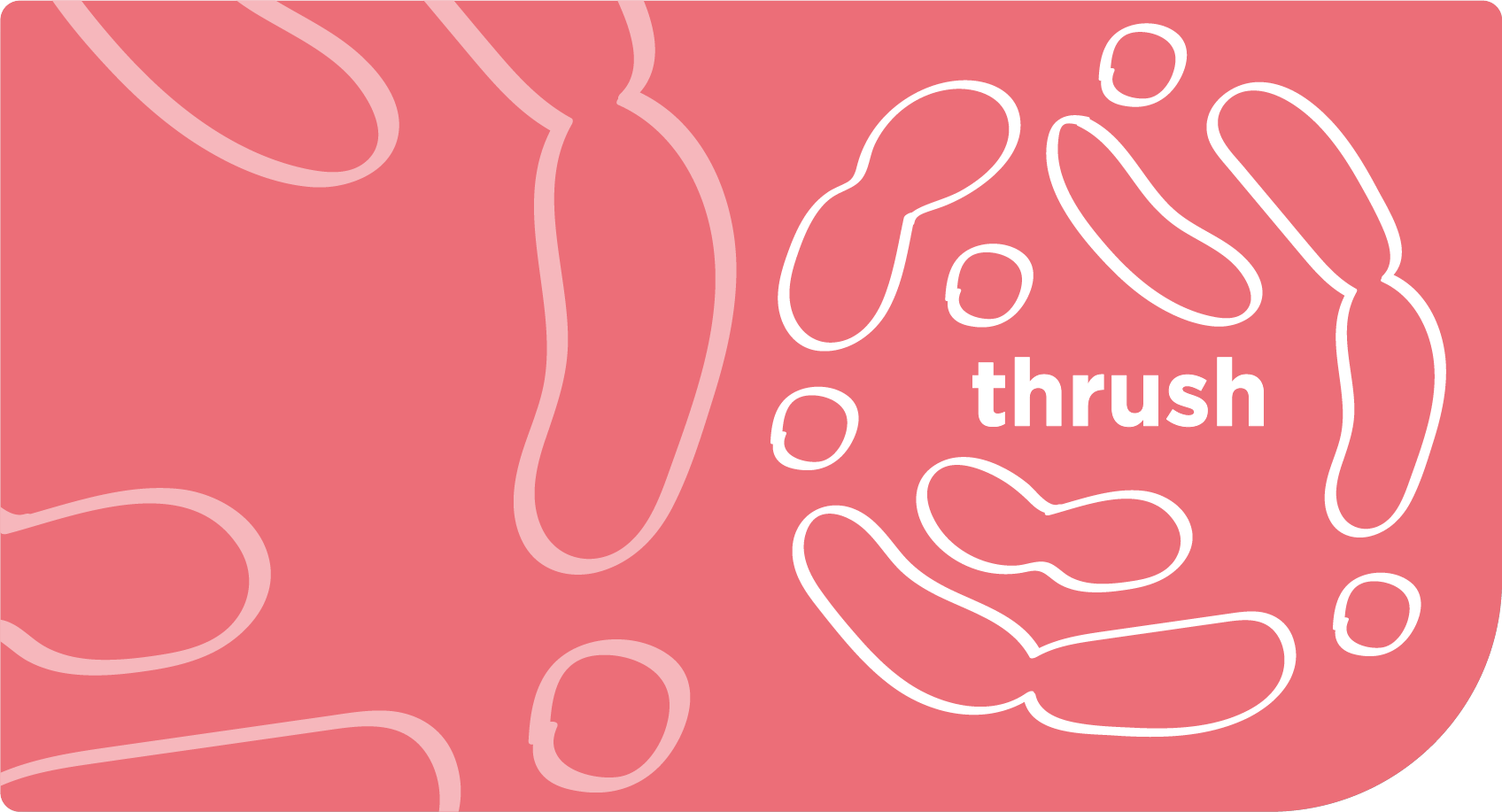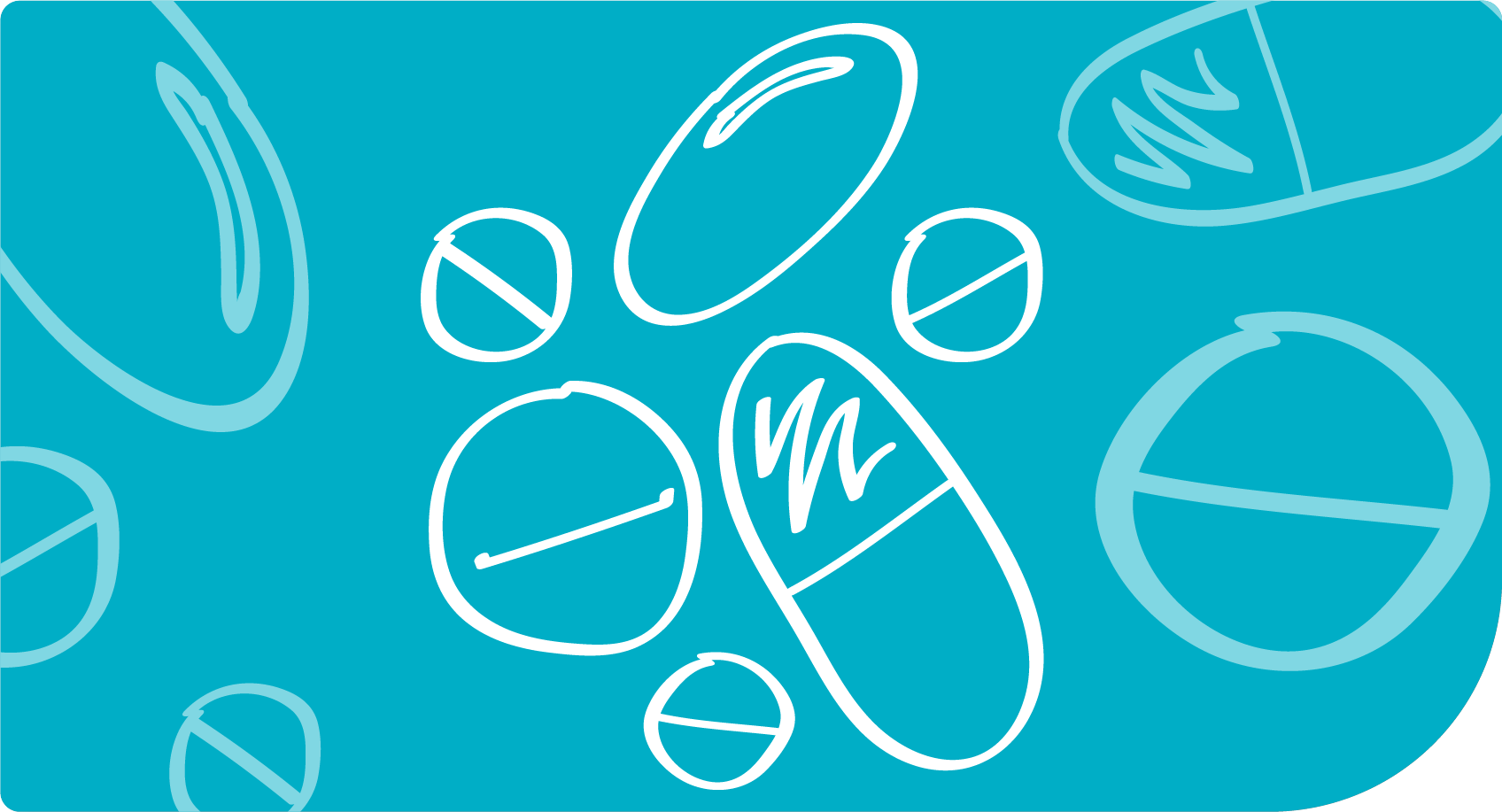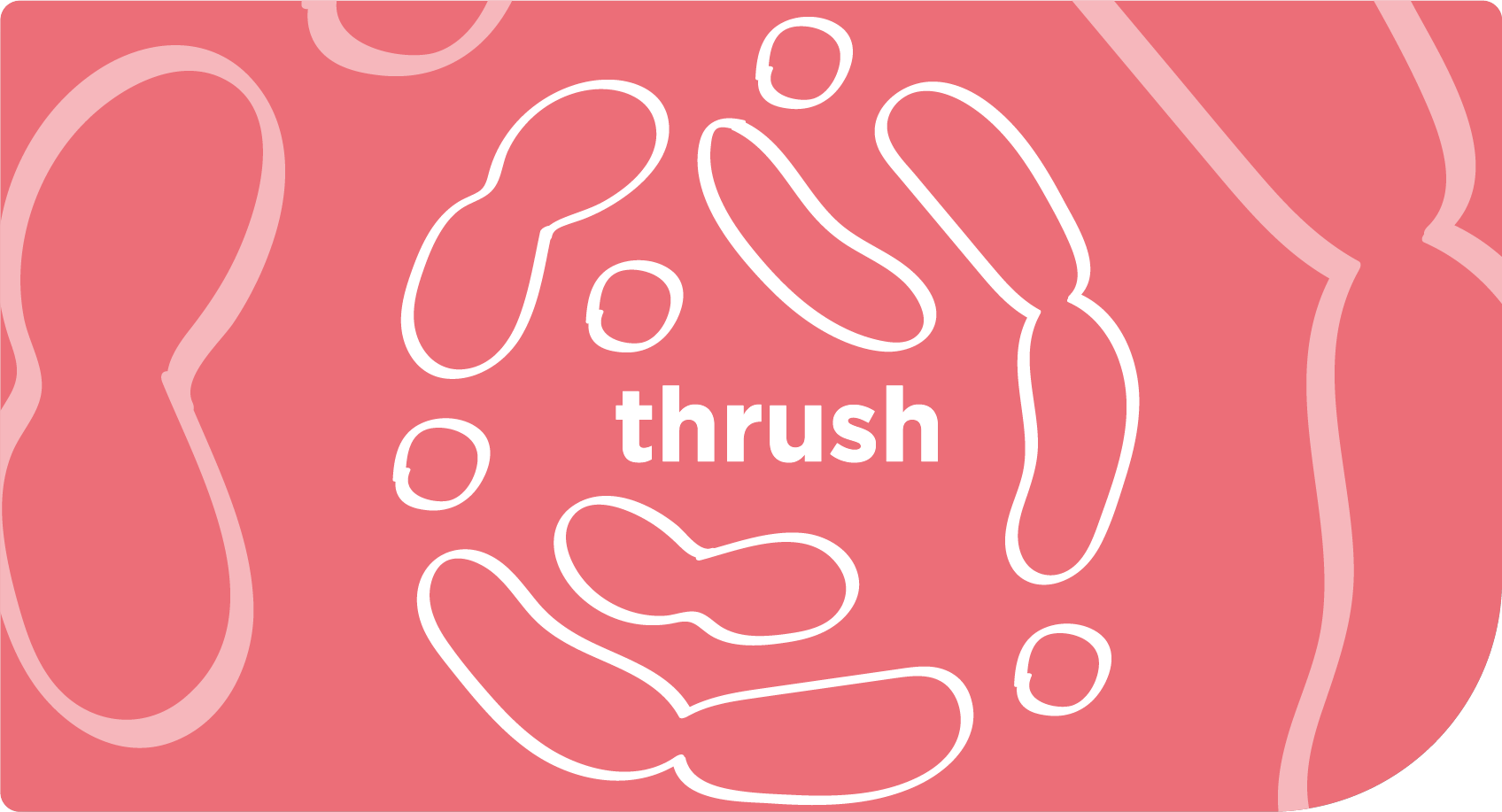Is thrush an STI?
Is thrush an STI? Well, you’ve landed in the right spot. In today’s blog, we’ll go through what thrush is, what an STI is and if they’re the same thing.
What is thrush?
Usually known as a yeast infection, thrush is caused by an overgrowth of the fungus Candida, which is normally present in the body in small amounts. When your body’s natural balance is disturbed, Candida can overgrow and cause a yeast infection. Here’s a few reasons that may throw off your body’s natural balance:
- Antibiotics.
- Hormonal changes like pregnancy or your period.
- Immune system disorders, such HIV or cancer.
- Diabetes.
- Using perfumed products, bubble baths or vaginal washing products.
- Smoking & alcohol consumption.
- Irritated or damaged skin.
- Underwear made from synthetic materials.
- Period care that includes bleach, plastic & fragrances. PSA: always stick to organic cotton period care.
Symptoms of thrush can include:
- White, thick vaginal discharge (it’ll look a bit like cottage cheese)
- Itching and irritation or fissure (almost like paper cuts) around your vagina.
- Pain when peeing or having sex.
- Redness or swelling of the vagina or vulva.
What is an STI?
Also known as a sexually transmitted infection, an STI is an infection primarily spread through sexual activity, this includes vaginal, anal & oral sex. STIs can be caused by bacteria, viruses, parasites or fungi and can affect everyone. Some common STIs include chlamydia, gonorrhoea, syphilis, genital herpes, HPV and HIV/AIDS.
An STI can be transmitted through various forms of sexual activity, this can include unprotected vaginal, anal or oral sex, and sharing sex toys. Some STIs, like genital herpes and HPV can be transmitted through skin-to-skin contact. Symptoms for STIs can vary greatly, from mild to severe, some may not even cause any symptoms at all.
It’s important to regularly test for STIs if you are sexually active and use protective contraception like condoms to reduce the risk of transmission. An STI that’s left untreated can develop into serious health conditions, such as infertility, pelvic inflammatory disease and certain types of cancer. So, always get yourself checked out by a health professional.
Is thrush an STI?
No, thrush is not an STI. Although thrush can be transmitted during sexual activity, thrush is not considered a sexually transmitted infection because it can occur in people who are not sexually active. We’ve got a blog all about whether thrush is contagious too.
If you are sexually active, it’s important to discuss any potential risks or concerns with your partner, as thrush can be transmitted through sexual activity and certain factors can increase the risk of developing thrush, such as a weakened immune system, taking antibiotics and other medical conditions.
Can too much sex cause thrush?
So, as we already know, whilst thrush is not a sexually transmitted disease, thrush can occasionally be triggered by having sex. Although it’s uncommon, it’s definitely possible. And it’s really not about how much sex you’re having.
The fungus that commonly causes thrush overgrows usually lives quite happily & harmlessly in your body, but when the balance of bacteria is altered it can overgrow and cause itching, irritation & discharge. So, if your genital area is moist & warm during and after, and you don’t pee after sex (this clears out the vagina from secretions and semen) you may find you’re more susceptible to thrush. Bacteria from your or your partner’s fingers, mouth, penis or sex toys can be introduced to your vagina and disrupt that natural ecosystem and cause thrush.
Is it thrush or an STI?
Some STIs have very similar symptoms to thrush and can often be misdiagnosed (especially if you don’t get tested)
Chlamydia
Like thrush, Chlamydia symptoms include irritation, discharge and pain when peeing. Chlamydia can also can abdominal pains & UTIs.
Gonorrhea
Both thrush & gonorrhoea cause discharge, however thrush discharge tends to be thick & white, something a little like cottage cheese whereas gonorrhoea discharge is on the yellow side.
Trichomoniasis
Similarly to thrush, with trichomoniasis, you may experience discharge (it could be white, grey or yellow in colour), genital redness and pain during sex
Herpes
Many find the symptoms of genital herpes so mild that they don’t know they even have it. Should you experience symptoms, you may have pain & irritation in the genital area which is also common with thrush. The most common symptom of genital herpes is small bumps, blisters, ulcers & scabs which you won’t get with thrush.
The only way to find out if you have an STI is to get tested. If you ever suspect or have recently had unprotected sex, then it’s best to make an appointment or take a test at home to ensure you have not contracted anything. This will minimise any future health problems and lower the risk of you passing it on to new partners.
Another common affliction that gets confused with thrush is bacterial vaginosis. Check out our blog to find out if it’s thrush or BV.
 Shop organic cotton period care
Shop organic cotton period care
Got more questions about STIs and thrush? Please get in touch! Drop us a message talktomesister@andsisters.coms


